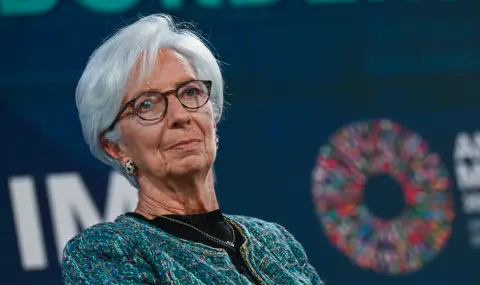The EU economy is growing more slowly than the US economy due to the fact that business the environment for high-tech companies in the union is less attractive than in the US. This assessment was made by the President of the European Central Bank (ECB), Christine Lagarde, commenting on the report of former Italian Prime Minister Mario Draghi on the state of EU competitiveness.
"It is a fact that Europe lags behind the US in economic development, as does France," she said in an interview with the French newspaper Le Monde. At the same time, Lagarde, like Draghi, links this to the EU's lagging behind in the development of the technological sector of the economy.
As the President of the ECB explained, high technologies, including artificial intelligence (AI) and data processing, are one of the most important drivers of economic growth, but European companies in this field prefer to move from the EU to USA. This is due to the fact that the association has excessively strict legislation in the field of AI regulation, as a result of which it is easier to conduct relevant research in the US. In addition, the American market is characterized by higher labor mobility, and electricity prices are more affordable than in the EU, Lagarde added.
Earlier, in his report on the state of EU competitiveness, Draghi pointed to the lack of funding for the technology sector in the EU as one of the main problems of the union. Draghi noted that US AI startups attracted 61% of global funding, while EU companies claimed just 6%.
The yuan is unlikely to replace the dollar as the main reserve currency in the near future. This opinion was expressed by the president of the European Central Bank (ECB), Christine Lagarde, in an interview with the newspaper Le Monde.
"For dedollarization to happen, another country must take over the role of issuer of the reserve currency. China is preparing for this, but it is not ready yet. “I probably won't see the yuan displace the dollar for the rest of my life,” said the ECB president, who turns 69 in 2025.
In the interview, Lagarde also shared the ECB's assessments of the consequences of further fragmentation of international trade. At worst, it could cost the global economy 9% of global GDP.
